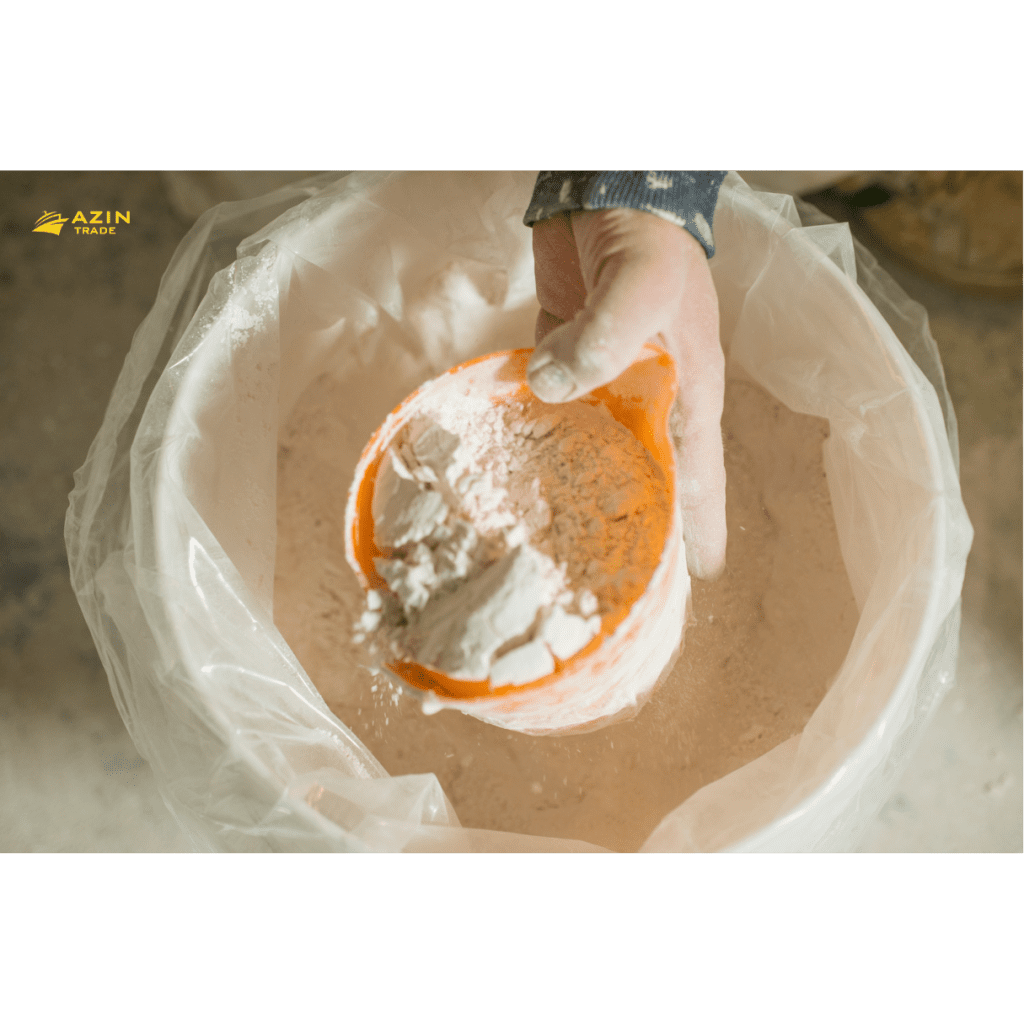
Quality control is an essential step in ensuring the purity and quality of gypsum powder. Here are some key aspects to consider for quality control of gypsum powder:
Chemical Composition Analysis
Performing a detailed chemical composition analysis is the cornerstone of quality control for gypsum powder. This analysis determines the concentration of major components such as calcium sulfate, as well as the presence of impurities or undesirable elements. Techniques like wet chemical analysis, X-ray fluorescence (XRF), and atomic absorption spectroscopy (AAS) are commonly employed. These methods provide precise data, ensuring that the plaster of paris powder meets the required chemical standards for its various applications.
Purity Assessment
Assessing the purity of gypsum powder involves comparing its composition to industry standards or specific client requirements. Purity is typically expressed as a percentage of calcium sulfate content. Ensuring high purity levels is crucial for applications such as construction, medical use, and art, where impurities can significantly affect performance and safety. Consistent purity assessment guarantees that the gypsum powder is suitable for its intended use.
Particle Size Distribution
The particle size distribution of calcium sulfate hemihydrate powder plays a vital role in its performance. Techniques such as laser diffraction or sedimentation analysis help determine this distribution. The particle size affects the flowability, reactivity, and application properties of the powder. For instance, finer particles might be needed for medical plasters, while coarser particles might be suitable for construction. Ensuring that the particle size distribution falls within the specified range for the intended application is crucial for achieving desired results.
Setting Time Evaluation
Setting time is a critical parameter, referring to the duration it takes for gypsum powder to harden after mixing with water. This property can be evaluated using standard test methods like the Vicat apparatus. The setting time should comply with the required specifications for the intended application, ensuring that the product meets both performance and safety standards. Whether for construction or medical applications, consistent setting times are essential for reliability.
Consistency and Flowability Assessment
The consistency and flowability of gypsum powder are important for ease of handling and application. Tests such as the flow cone test or the flow table test can evaluate these properties. Consistency ensures that the powder mixes well with other components, while good flowability ensures smooth processing and application. Ensuring that gypsum powder exhibits the desired consistency and flowability based on application requirements is vital for operational efficiency.
Moisture Content Determination
Moisture content is another critical factor affecting gypsum powder quality. Excessive moisture can lead to clumping, caking, or degradation of the powder, compromising its performance. Techniques like thermogravimetric analysis (TGA) or Karl Fischer titration are used to measure moisture content accurately. Maintaining optimal moisture levels ensures the stability and longevity of gypsum powder during storage and use.
Packaging and Labeling Inspection
Proper packaging and labeling are essential for maintaining the quality of gypsum powder. Inspection ensures that packaging meets regulatory requirements and that labels provide accurate product information, including the manufacturer, batch number, date of manufacture, and any relevant safety or handling instructions. Proper packaging prevents contamination and damage, while accurate labeling ensures traceability and compliance with industry standards.




